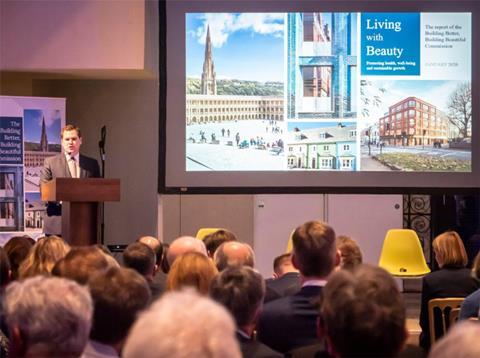Building Design columnist working on national code that can be adapted by local authorities
Urbed, the practice founded by urbanist and Building Design columnist David Rudlin, has been appointed to write the government’s new model design code.
The national model urban design code will be available for councils to adapt into the local codes they will be expected to prepare under the newly published planning white paper.
These will need to reflect the history and fabric of local areas and will require significant community input. They will then be used as part of the expanded system of permission in principle. Projects in areas zoned for renewal will be exempt from planning if they comply with the local design code.

Urbed’s work is expected to go out for consultation towards the end of the year.
>> Also read: Ten things you need to know about the planning white paper
The idea of a national model design code was included in the National Urban Design Guide published last year but the planning white paper gives it even more importance, potentially replacing much of what is in local plans. The implication is that a development that accords with the code will have some form of deemed planning consent when the rather vague white paper becomes legislation.

>> Also read: Housing secretary outlines plans to reform permitted development
>> Also read: Government urged to set up design quality unit for England
Rudlin said he was pleased to be working on such an important project but was unable to comment further.
At the start of this year he was jointly awarded the £100,000 Built Environment Fellowship by the 1851 Royal Commission to spend two years investigating the stories behind 100 British high streets, both those that are struggling and those that have bucked the national trend.
He also won the £250,000 Wolfson Economics Prize for his work on garden cities six years ago.
















2 Readers' comments